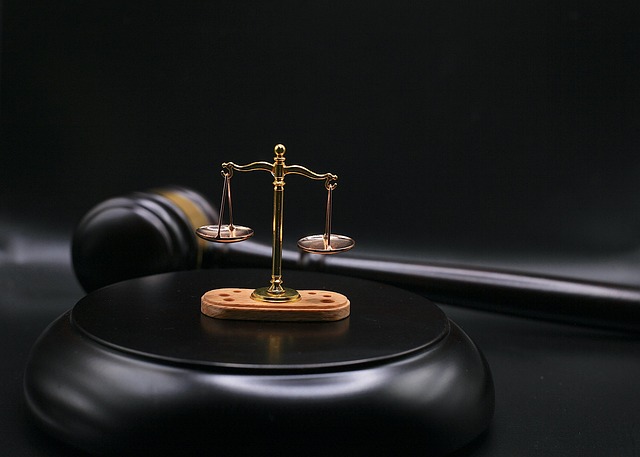The Right to a Fair Trial, protected by the Constitution, is crucial for criminal justice, ensuring individuals and businesses face justice fairly. This right guarantees transparent procedures, protection against self-incrimination, and the right to legal representation and confront witnesses. It fosters trust in the system, especially through due process rights, impartial jury selection, and competent legal advocacy. Balancing this fairness with efficiency is a modern challenge, requiring innovative strategies and technology while maintaining public trust in law enforcement.
“Delve into the intricate world of criminal law cases, where the right to a fair trial stands as a cornerstone of justice. This article explores the fundamental principles that underpin procedural fairness, guided by the constitution. From understanding key components like legal representation and jury selection to addressing modern challenges, we unravel the complexities. Discover how the balance between individual rights and legal efficiency shapes contemporary criminal law, emphasizing the enduring significance of the Right to a Fair Trial in ensuring justice is served.”
- Understanding the Right to a Fair Trial: A Cornerstone of Criminal Justice
- The Constitutional Framework: Ensuring Procedural Fairness
- Key Components of a Fair Trial: From Representation to Jury Selection
- Challenges and Modern Perspectives: Balancing Rights with Efficiency in Criminal Law Cases
Understanding the Right to a Fair Trial: A Cornerstone of Criminal Justice

The Right to a Fair Trial is a fundamental cornerstone of criminal justice, enshrined in the Constitution and considered vital for protecting both corporate and individual clients across the country. It ensures that every accused person has an opportunity to be heard, challenging any evidence against them, and having access to legal representation of their choice. This principle safeguards against potential injustices, where an individual’s freedom and reputation hang in the balance.
Understanding this right is crucial for ensuring fairness throughout the criminal justice system. For his clients, whether they are corporate entities or individuals, a fair trial means that every step from investigation to verdict is conducted impartially. It involves transparent procedures, protection against self-incrimination, and the right to confront witnesses. This ensures not only that guilty parties are brought to justice but also that innocent people are acquitted, upholding the integrity of the legal process itself.
The Constitutional Framework: Ensuring Procedural Fairness

The Constitutional Framework plays a pivotal role in ensuring fairness within Criminal Law Cases, particularly in terms of safeguarding the Right to a Fair Trial. This framework is designed to protect individuals from arbitrary or unfair prosecution, guaranteeing their rights throughout every stage of legal proceedings. At its core, it mandates due process, which includes the right to be informed of charges, to confront witnesses, and to present evidence on one’s own behalf—essential components for a just trial.
In high-stakes cases, especially within the realm of general criminal defense, this constitutional framework becomes even more critical. It ensures that businesses and individuals alike are treated equitably before the law. By upholding procedural fairness, it fosters trust in the justice system, enabling respected legal professionals to navigate complex cases with confidence, ultimately contributing to a more robust and just society.
Key Components of a Fair Trial: From Representation to Jury Selection

Ensuring a fair trial is a cornerstone of any just society, and it begins with understanding key components that make up this process. One of the most fundamental principles is the Right to a Fair Trial as guaranteed by the Constitution. This right encompasses several critical elements that must be in place for any criminal proceeding to be deemed equitable and unbiased.
Effective legal representation is paramount. Defendants must have access to competent counsel who can vigorously advocate on their behalf, challenge evidence, and ensure proper procedure throughout the trial. Additionally, an impartial jury selection process is crucial, where potential jurors are questioned to ensure they can set aside personal biases and render a verdict based solely on the presented evidence. This meticulous approach ensures that every individual involved in a criminal case has a fair chance at a respective business outcome, whether leading up to a jury trial or resulting in a complete dismissal of all charges.
Challenges and Modern Perspectives: Balancing Rights with Efficiency in Criminal Law Cases

In modern criminal law cases, balancing rights and efficiency presents a continuous challenge. The right to a fair trial, enshrined in the Constitution, is paramount, ensuring suspects are treated with dignity and their legal defenses are considered. However, as legal systems navigate all stages of the investigative and enforcement process, the pressure to maintain fairness while enhancing efficiency gains prominence. This delicate balance becomes more complex given the evolving nature of crime and society’s expectations for swift justice.
Modern perspectives advocate for a comprehensive approach that respects individual rights while streamlining respective business processes. This involves innovative strategies in general criminal defense, such as leveraging technology for evidence management and utilizing alternative dispute resolution methods to decongest courts. Ultimately, striking this balance is crucial not only for upholding the integrity of the justice system but also for fostering public trust and confidence in law enforcement.
In conclusion, the right to a fair trial, grounded in the Constitution, is a cornerstone of criminal justice. Understanding and upholding this fundamental principle involves navigating key components such as legal representation, jury selection, and procedural fairness. While challenges persist, from case overload to technological advancements, modern perspectives emphasize balancing rights with efficiency. Ensuring every defendant receives a just and impartial trial remains paramount for a fair and equitable legal system.






